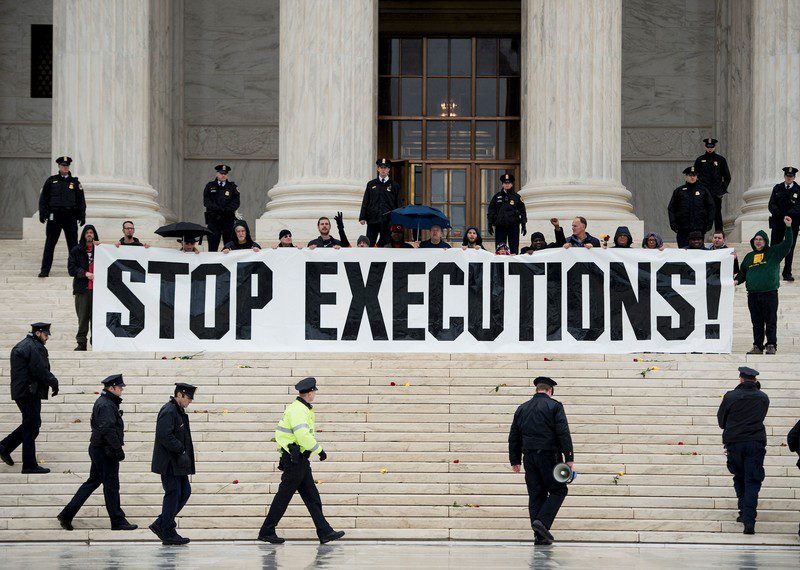In a landmark vote, more than two-thirds of United Nations member states have backed calls for a U.N. moratorium on the death penalty to abolish it. The vote will take place on December 17, 2024, at the United Nations General Assembly (UNGA) plenary session.
Chiara Sangiorgio, an expert on death penalty issues at Amnesty International, said after announcing the news:
“This vote marks a major turning point for countries around the world and demonstrates that United Nations member states are steadily moving closer to rejecting the death penalty as a legitimate punishment under international human rights law. Support for the death penalty appears to be much different from when international treaties allowing its retention were first adopted. Big difference. The unprecedented support for this resolution shows that the global journey to abolish the death penalty is unstoppable.
“These resolutions carry considerable moral and political weight, ensuring that the use of this cruel punishment will continue to be scrutinized. Countries voting in favor of a moratorium now account for two-thirds of all countries, up from 104 in 2007 130 this year. This year’s vote was a very positive move, with Antigua and Barbuda, Kenya, Morocco and Zambia voting for the first time to support calls for a moratorium on abolition, reflecting steady progress and dialogue on abolition at the national level. .
The vote showed a growing consensus among countries to reject executions as a practice consistent with protecting human rights.
Chiara Sangiorgio, death penalty expert at Amnesty International
“However, we deplore the language in the resolution that reaffirms the sovereign right of each State to determine its own criminal penalties in order to justify the imposition of the death penalty. This language must be rejected as a matter of priority, as it weakens the United Nations resolution as the standard pursued spirit whose sole purpose is to hinder human rights progress on an issue as important as the death penalty.
“Amnesty International has been campaigning for the abolition of the death penalty for nearly five decades. This vote shows that countries are reaching consensus on rejecting executions as a practice consistent with protecting human rights. This is despite 2023 execution figures in countries such as Iran, Saudi Arabia and the United States Shocking, but the number of countries that still carry out executions is only a minority.
“Following this resolution, countries that still retain the death penalty must take immediate steps to abolish it, while all UN member states must take responsibility for the blatant violations of the right to life that we witness every day through executions.”
Amnesty International opposes, without exception, the death penalty in all circumstances, regardless of the nature or circumstances of the crime; guilt, innocence or other characteristics of the person; or the methods used by the State to carry out the execution.
background
- 130 United Nations member states (more than two-thirds of the United Nations member states) voted to adopt the tenth resolution on the moratorium on the use of the death penalty, with 32 countries voting against and 22 countries abstaining. The resolution was proposed by Argentina and Italy on behalf of the inter-regional working group of member states, and was co-sponsored by 70 countries.
- Support for the resolution has grown since it was last adopted by the plenary in December 2022. Antigua and Barbuda changed its vote from no to yes. Gabon, Kenya, Morocco and Zambia voted in favor after abstaining in 2022; the Bahamas, Bangladesh and the Democratic Republic of Congo switched from opposing to abstaining. Sao Tome and Principe, Seychelles, Somalia and Vanuatu voted in favor after not voting in plenary two years ago.
- Some countries have changed their stance negatively. Guinea and Uganda switched from voting yes in 2022 to abstaining this year. Mauritania and Papua New Guinea switched from abstention to opposition.
- The Dominican Republic, Grenada and Syria, which voted against the bill in 2022, and the Central African Republic and the Marshall Islands, which voted for it in 2022, were not present at yesterday’s vote. Comoros abstained from the vote as it was absent from the 2022 meeting.
- Since 2007, the UN General Assembly has adopted ten resolutions calling for a moratorium on executions with a view to abolishing the death penalty and strengthening cross-regional support.
- The number of countries listed by Amnesty International as abolitionist for all crimes has increased from 90 in 2007 to 113 currently.


